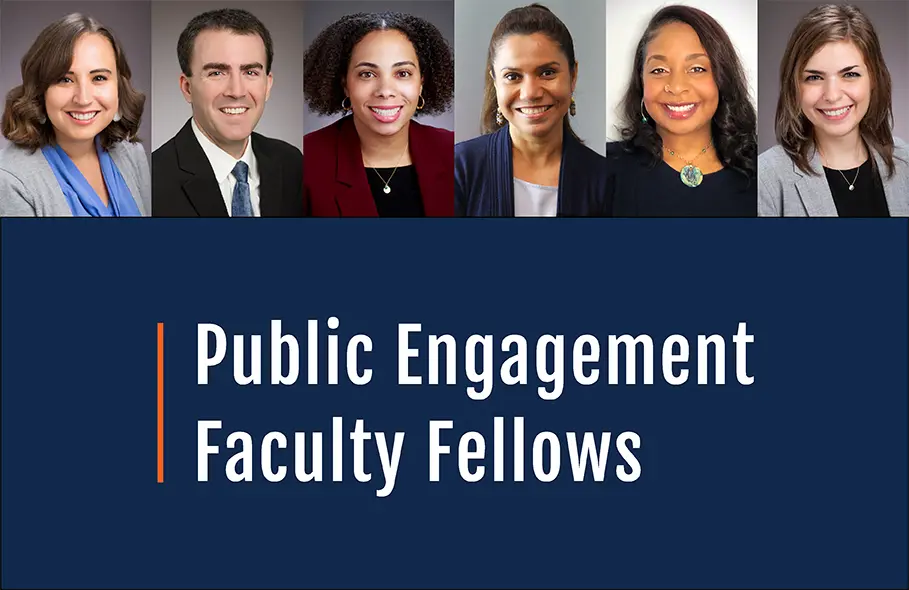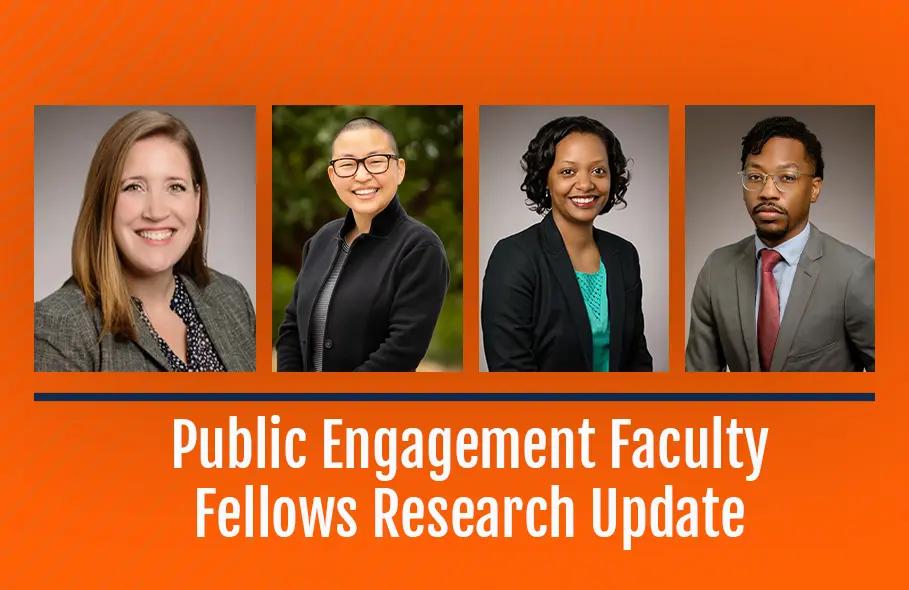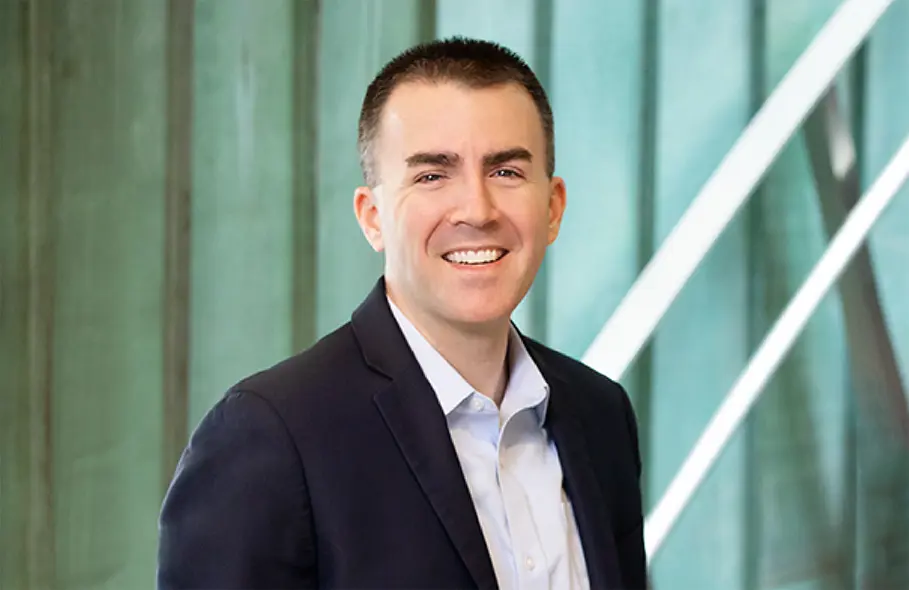Faculty Fellows Cohort Expands, Collaborates on New Projects for 2023-24 Academic Year
by Ashley Lawrence Pellegrini / Aug 28, 2023

Six new faculty members have been selected to represent the College as Public Engagement Faculty Fellows in the program’s second year and will partner with local and national communities to improve understanding and practices in education. Fellows receive a $6,500 grant to help fund their partnered project.
The inaugural four fellows have worked throughout this school year to delineate values and definitions for publicly engaged research within the College and are concluding their own community-engaged projects this spring.
The group of six faculty fellows for 2023-24 will support the College in developing a strategic plan for public engagement. The College of Education is one of six units on campus awarded funds from the Office of the Chancellor as part of its Engaged Unit Program to further infuse public engagement into the overall research and teaching of the College.
“We are thrilled to introduce the next cohort of Public Engagement Faculty Fellows. Their projects include local, statewide, and national engagement and will advance the College’s public engagement mission through thoughtful, values-driven engagement work,” says Emily Stone, director of public engagement. “The growth of this program demonstrates Dean Mouza and the College’s sincere commitment to public engagement work.”
Paul Bruno, Assistant Professor of Education Policy, Organization & Leadership
Paul Bruno is working in partnership with Urbana School District #116 to understand and improve their teacher hiring committee practices.
"We know teachers are extremely important and that schools are hiring teachers all the time. But teacher hiring is also notoriously difficult to do efficiently and effectively,” he says. “We're excited to provide researchers with some of the first evidence about how teacher hiring committees operate and to give administrators some of the first concrete guidance for using those committees to hire the best teachers for their schools."
Aixa Marchand, Assistant Professor of Educational Psychology
With Champaign Unit 4 schools, Aixa Marchand seeks to center the voices of Black parents to understand the ways they perceive their children’s school and how they engage within that space. Using Photovoice, a participatory process that invites users to co-construct knowledge through the use and discussions of photos, the goal is to identify challenges and strengths and present findings to the community through a culminating symposium, where participants’ photos will be displayed.
“Through this project, we hope to spark conversations with the community and school district about ways to address structural racism present in schools,” says Marchand. “The goal is to better partner with Black parents with the aim of educational justice for their children.”
Giselle Martinez Negrette, Assistant Professor of Curriculum & Instruction
Giselle Martinez Negrette is collaborating with Leal Elementary School in Urbana to explore how teachers mediate culture in dual language classrooms and how this mediation impacts teaching practices and social interactions between teachers and students.
“How do notions of culture, identity, diversity, and language develop and intersect in the multilingual/multicultural/multiracial school setting?” asks Martinez Negrette. “The goal is to create a space for authentic reciprocal collaboration where educators, as community partners, can use data collected in the classroom to engage in self-reflection and work with the research team to better understand the role of culture in their interactions and teaching practices. We hope to find practical ways to counteract pedagogical projects that may (re)produce inequities in education and society.”
Rachel McMillian, Assistant Professor of Curriculum & Instruction
Rachel McMillian’s project involves bringing together 10 incarcerated men at Statesville and Sheridan Prisons in Illinois to engage in curriculum deliberation—the process through which educators, students, families, and community members decide what is most worth knowing in schooling and education. Using the men’s lived experiences with incarceration as a starting point and partnering with the Prison-Neighborhood Arts/Education Project, McMillian’s process will critically explore the systemic causes of incarceration, Chicago’s history and role in mass incarceration, the impacts of incarceration on Black students and their families in Chicago Public Schools, and school/prison abolition.
“I am hopeful that this project will not only enable the men to share their stories in classrooms throughout Chicago, but that it will lead to an increased recognition of the humanity of those incarcerated and the need for prison abolition,” says McMillian.
Kaylin Ratner, Assistant Professor of Educational Psychology
Kaylin Ratner will focus on sustaining a collaborative partnership with GripTape, a national non-profit self-driven learning program. Its mission is to imbue learning with agency by helping under-resourced teens pursue their passions through “Learning Challenges."
“The goal of this project is to investigate the psychosocial, self-regulatory, and well-being experiences youth have during GripTape enrollment. Working with GripTape to vet these experiences in a careful, systematic way through empirical research offers them a means for keeping pace with their mission,” says Ratner. “This work also stands to improve our understanding of how to foster youth engagement in learning.”
Michele Schutz, Assistant Professor of Special Education
Michele Schutz is partnering with special educators from LeRoy Community Unit School District to co-construct opportunities for soliciting input and involvement from the local community in supporting students with disabilities who are transitioning from high school to employment.
“For many reasons, service systems often fall short of equipping youth with intellectual and developmental disabilities living in rural areas with the opportunities and supports critical for obtaining and sustaining meaningful work,” says Schutz. “In this project, school personnel will leverage their networks and resources to tap into the capacities of their local community to create pathways that facilitate the success of individuals with disabilities in employment. In turn, we hope that educators will generate new strategies grounded in the very assets and values of their community.”

